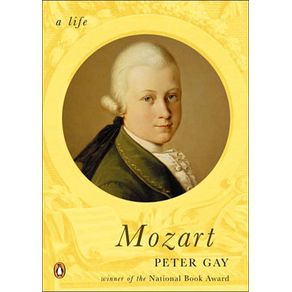In the new Penguin Lives series, edited by former New York Times editor James Atlas, Gay's Mozart biography comes with particularly high expectations, given the author's distinction as a historian (he won the National Book Award for volume one of The Enlightenment). There is little new information here, yet Gay's overview of the composer's life and work is lucid and concise. Noted for his studies of Freud and Victorian society, the author clearly knows the Mozart literature as well. His book includes a fine bibliographical essay, in which he admits to leaning on Maynard Solomon's 1995 tome, Mozart: A Life. Gay provides brief glimpses into the social and historical contexts of Mozart's music: changing attitudes toward listening, the economics of composition and new audience sectors. Also notable is the discussion of how well Mozart's works were received and the author's survey of how Mozart was regarded by subsequent composers. Gay offers a straightforward and helpful introduction to Mozart, debunking romantic interpretations of the composer's life. (Gay maintains that Mozart's burial in an unmarked grave was due to the practice of the period, when extravagant funerals were frowned upon, rather than to poverty.) However, in a bookthis size, it's hard to stay away from the occasional oversimplified phrase (Mozart "could not have written mediocre music if he tried"). While Gay's judgments of Mozart's works are mostly unsurprising and in line with general opinion, they are discussed vividly and with enthusiasmAand bolstered with famous quotes and thorough references.



